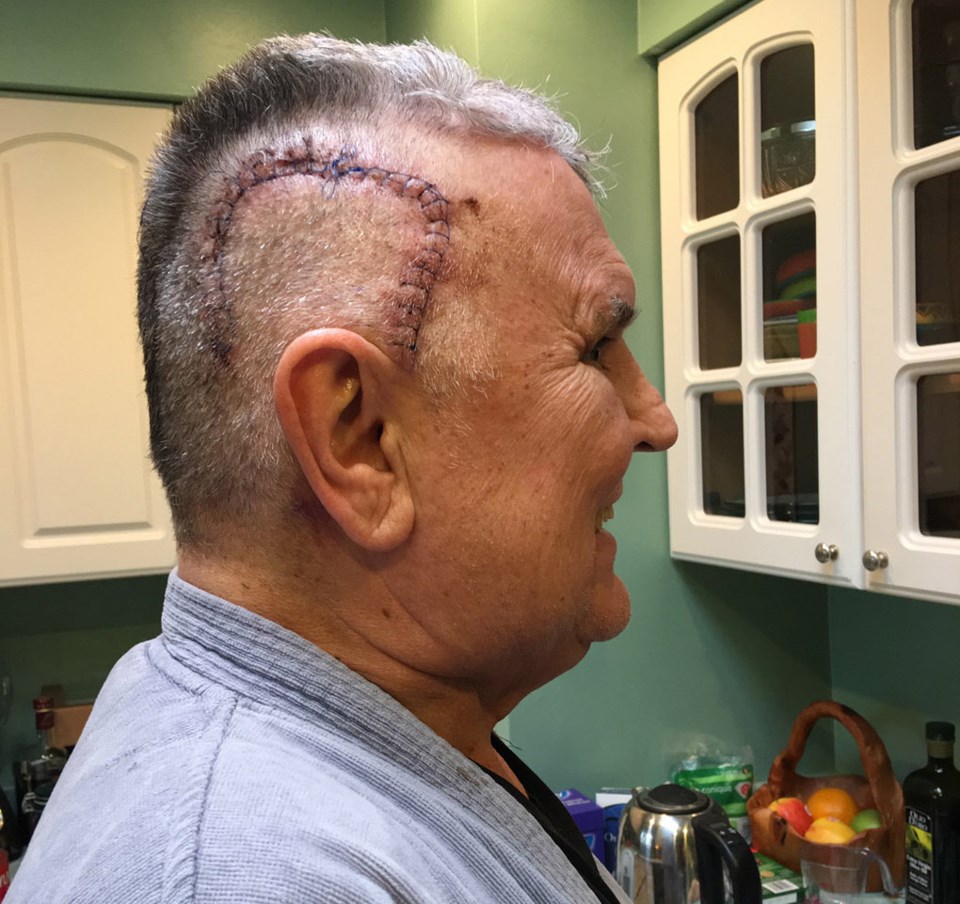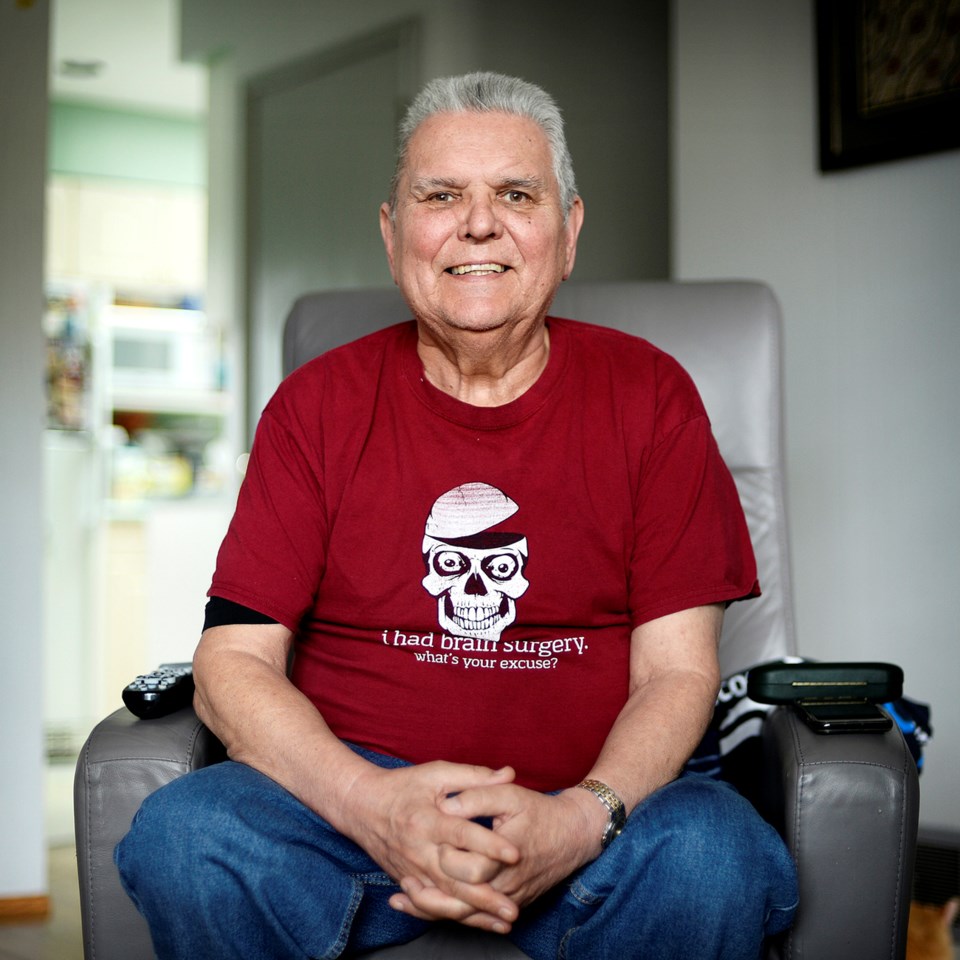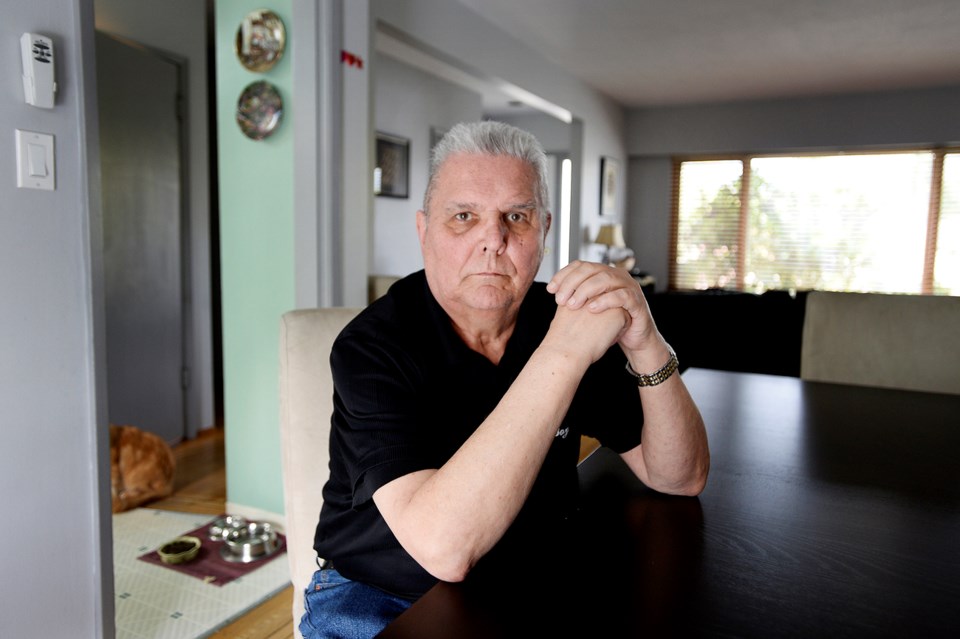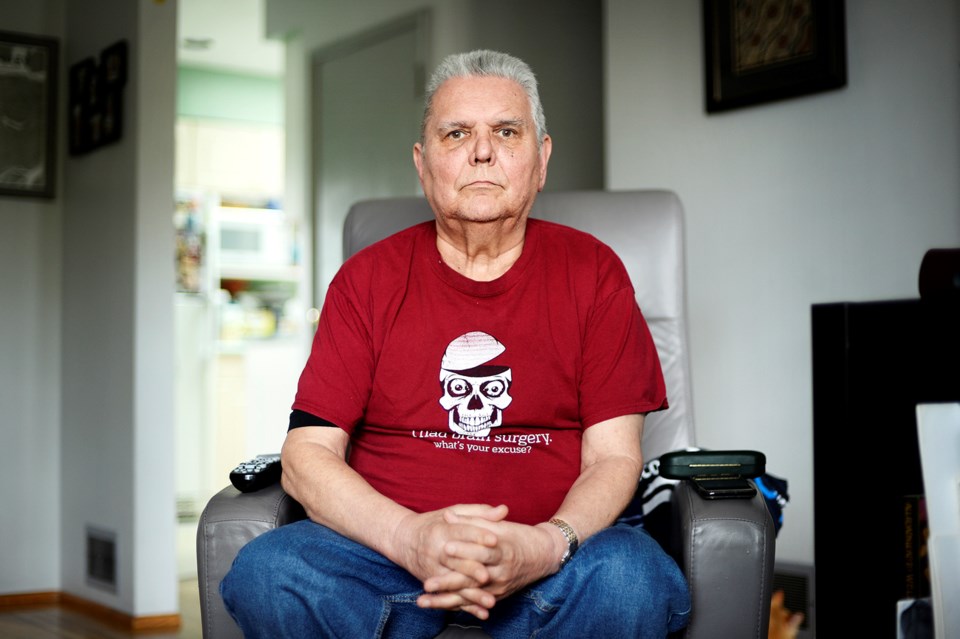Nick Volkow came home one day to find Todd Bertuzzi splayed out on his hardwood floor.
“He’s just kind of laying down, lethargic and not showing any life in him,” Volkow says, recalling that day in 2016 when Todd, his cat, was uncharacteristically sleepy.
The Burnaby city councillor had been experiencing mysterious nausea and headaches for months, but his pet’s behaviour sparked a new theory to explain the symptoms: Perhaps his recently serviced furnace was leaking and the two of them were feeling the effects of a slow carbon monoxide leak.
Volkow had spoken to his family doctor about the symptoms, but a cause had yet to be identified.
When he got another headache and started to feel a “little raunchy” later that day, Volkow asked his son for a ride to the emergency room at Burnaby Hospital, where he received a CT scan of his head.
'What's going on?'

As he was readying to leave after the scan, the retired truck driver asked if he could meet friends at a bar for a couple of beers. The doctor said that would be fine, as long as he didn’t overdo it.
But before he could leave for the bar, someone spotted something in his scan results. Another scan was ordered, this time with contrast – an injected dye used to highlight certain parts of the body.
After the second scan, a doctor told Volkow he was going to be taken via ambulance to Royal Columbian Hospital in New Westminster. It was an “emergency transfer” to a hospital with a shorter wait time for an MRI scan.
“Wow,” Volkow remembers thinking. “OK. What’s that? What’s going on?”
It soon became clearer what was going on: Volkow had a glioblastoma multiforme, or GBM, the most common and aggressive malignant brain tumour.
Four days after checking into the hospital, Volkow was on the surgery table, anesthetized, with the right side of his head cut open to extract the tumour.
Two days later, he was sent home. But Volkow’s ordeal wasn’t over.
'The good new is, it's not expanding'
Further testing showed the brain cancer hadn’t been completely removed.
A round of radiation was followed by chemotherapy.
Now, more than two years after the initial diagnosis, the 67-year-old continues chemotherapy.
The tumour remains.
“It’s stable and it’s shrinking a little,” he says. “The good news is, it’s not expanding.”
Volkow has had to face his battle with cancer without his wife, Shirley, who died of lung cancer in 2016. The pair had known each other since Grade 5.
'My kids have been dynamite'

Volkow drove more than a million miles in semi trucks over his career, but fatigue caused by his chemotherapy renders him unable to drive. He says he has been lucky to have no shortage of volunteers willing to drive him to appointments.
“My kids have been dynamite, and my friends couldn’t be better,” he says. “That’s the importance of having made relationships through your life and good friends and all of that – that in your moment of need, you know they’ll be there for you.”
Volkow’s attendance at council meetings has been spotty, in recent months. He leaves some meetings early and doesn’t show up to others. Fatigue, a side effect of his chemotherapy, is to blame, he says.
“I know I’ve been derelict this term because of this. My attendance record prior to this was immaculate. In 21 years, I very rarely missed any meetings,” he says. “But this time around, I’ve missed enough meetings for 25 terms, for crying out loud.”
Despite having a malignant tumour in his brain for two years, Volkow says he has had surprisingly few symptoms – aside from the side effects of medication.
The tumour does, however, press against his temporal lobe, which regulates one’s sense of time.
He gets confused about the day of the week. He’ll go through a Saturday thinking it’s Friday and never correct himself. And time often moves quicker in his head than it does on the clock.
“If I get up at 8 a.m., (when) noon rolls around, I think it’s 2 p.m.”
'I want to be part of the discussion'
Otherwise, the veteran councillor still feels sharp. That’s why he ran for re-election last fall, winning his eighth term on council.
“I want to be a part of the discussion,” he says.
And he’s an important part of the discussion about the future of a changing city, Paul McDonell says. The fellow Burnaby Citizens Association councillor describes his friend as a knowledgeable debater who bases his opinions on knowledge gained from his “ferocious” reading habit.
“Some guys speak because they think they know it, whereas he (speaks) because he (does) know it,” McDonell says.
McDonell, who was diagnosed with prostate cancer in 2016 and has since recovered, says he was shocked when Volkow was diagnosed, but he’s been happy to support his friend, even when all that means is taking him to their favourite haunt for a drink.
“We’ve just got to pull together and do as much as we can to keep him going,” McDonell says.
Volkow has already beaten the odds by surviving more than two years with the disease. Studies from the U.S. show the median survival time is less than 15 months. Only a third of patients reach the two-year mark.
Susan Marshall, CEO of the Brain Tumour Foundation of Canada, says a soon-to-be released study shows the numbers are similar in Canada.
Brain cancers are relatively rare, so they are under-researched, she says. It’s not known what causes GBMs or why they affect men more than women.
But, Marshall says, there are promising new treatments – including immunotherapy and oncolytic viruses – being studied that could one day improve the prognosis for patients.
'Go and get it checked out ASAP'

The key is early diagnosis, so treatment can start before the cancer can infiltrate different parts of the brain. But early detection can be hard.
The early symptoms for most patients, including Volkow, are nausea and headaches – similar to other, less-deadly illnesses.
“Often we hear that it’s taken a long time for someone to be diagnosed because their symptoms are so similar to the common flu,” Marshall says.
Volkow has identified another hindrance to early diagnosis – stubborn men.
“I think we’re raised as boys to be tough: ‘Don’t cry. Shake it off.’ This kind of BS, right? And it kind of carries on.”
Volkow’s message to men experiencing persistent headaches coupled with nausea: “Go and get it checked out ASAP.
“And to the women in these men’s lives, understand that we are negligent when it comes to doing that. You make sure you urge them to get it checked out.”
'I don't think this is going to end me'
Volkow is optimistic and expects to turn a corner and start attending meetings more regularly.
Fewer than 10 per cent of glioblastoma patients live five years or longer with the disease, but Volkow seems undeterred.
“I don’t think this is going to end me,” he says with a laugh. “I think I’ll get hit by a bus before this ends me.”



